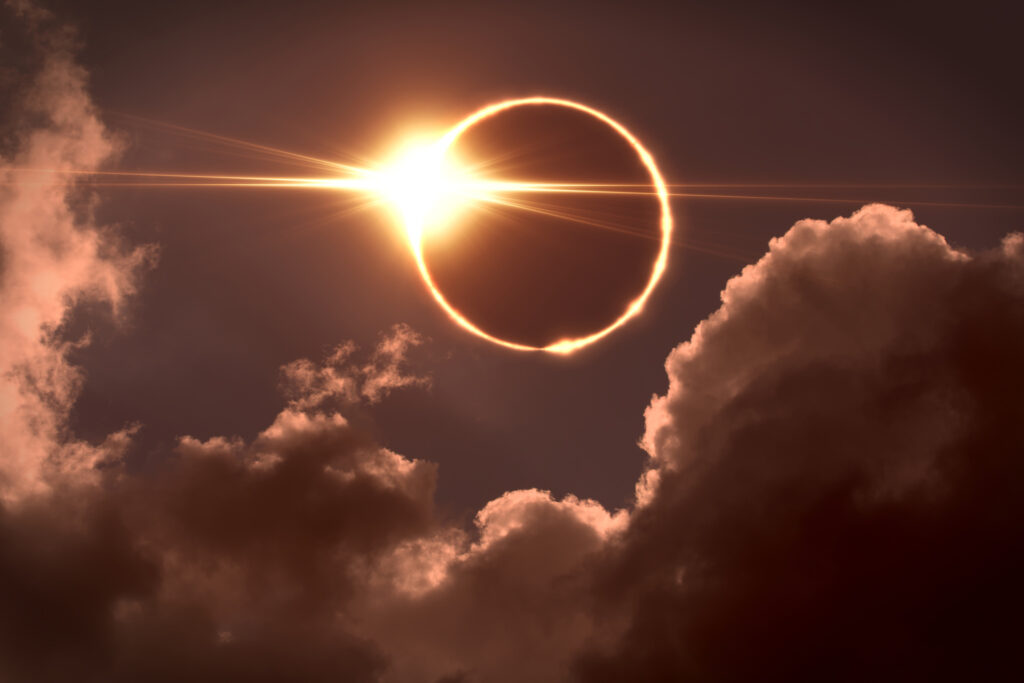Safety tips for drivers during total solar eclipse
Drivers, do yourselves and your eyes a favor. Don’t look at the total solar eclipse that’s approaching during the afternoon of April 8 without taking precautions. You could permanently damage your vision during the rare celestial phenomenon that will unfold over parts of eastern Canada and the U.S.
It is safe to drive during an eclipse, but drivers must keep their eyes focused on the road and not get distracted and stare at the sky, said Dr. Nadine Furtado, associate clinical professor at the University of Waterloo School of Optometry and Vision Science.
The only way to safely view a solar eclipse is with eclipse glasses or a solar eclipse viewer – these are specifically designed solar filters which block out everything except the sun. “Do NOT drive with eclipse glasses,” warns Furtado.

What will happen if you ignore the doctor’s advice and decide to glance at the sky without protection?
“This can result in solar retinopathy, which is damage to the retina following exposure to radiation from the sun,” Furtado said.
The retina is the part of the eye that sends a signal to the brain so that you can see. Solar retinopathy can result in permanent vision loss. Damage to the eyes can occur anywhere from four to 12 hours after staring at an eclipse.
“If you are experiencing any blur, distortion or blind spots in your vision, following the eclipse, or any light sensitivity or eye pain, you should seek care from your optometrist immediately,” Furtado said.
Avoid unfiltered camera lenses
And don’t go fishing out that phone to take pictures, even while wearing eclipse glasses. An unfiltered camera lens intensifies the light rays from the sun, thereby cancelling the protective effects of the eclipse glasses.
A million people are expected to converge in Niagara Falls, Ont., for the event and two busy border crossings used by commercial vehicles are in the area – Queenston Lewiston Bridge and Fort Erie (Peace Bridge).
The City of Niagara Falls has already declared a state of emergency due to the large crowds expected that day.
Guy Broderick, safety and training supervisor at Kriska Holdings, wondered if this will affect border crossing times.
Park and take a break
A trucking safety professional from Alberta said if drivers can avoid the area, they should. It might be better to drive the extra miles than getting stuck in the area.
Broderick said if he was still driving, he would probably park for the duration of the eclipse. “I wouldn’t pull over to the side of the highway. As it was approaching, I’d get off the highway and find a safe spot to park.”
The Alberta safety professional suggested drivers could take their break during the eclipse.
Distracted drivers
He also urged truckers to be aware of other drivers who may be distracted. “Beware for vehicles that swerve and those that will pull over to the side of the road or may suddenly pull out in front of you,” he warned.
In Canada, the path of totality will pass through some cities and towns in Ontario, Quebec, New Brunswick, Nova Scotia, Prince Edward Island and Newfoundland, plunging them into darkness for a few minutes. People outside the path of totality will be able to observe a partial solar eclipse, during which the sun is not hidden in totality.
The University of Waterloo’s Furtado said so long as you do not look at the eclipse, there should be no long-term impact to vision. The event will cause night-like driving conditions, so drive accordingly.

Have your say
This is a moderated forum. Comments will no longer be published unless they are accompanied by a first and last name and a verifiable email address. (Today's Trucking will not publish or share the email address.) Profane language and content deemed to be libelous, racist, or threatening in nature will not be published under any circumstances.